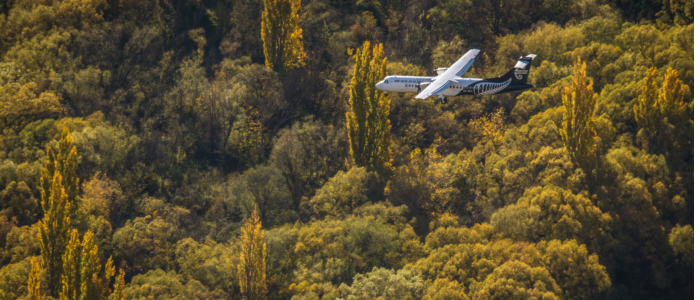The State We're In
Ssssshhhhh! Build quieter communities for people and wildlife
By Alison Mitchell, Executive Director, New Jersey Conservation Foundation
Unlike smoke, smog, and litter, noise pollution doesn’t leave a visible trace. But uninvited sound seeps into every corner of our lives, disrupting the peace of our homes and parks, and spreading across neighborhoods, even reaching the wild spaces we cherish.
Eric Zwerling has spent over 35 years teaching communities how to measure and manage noise. As Director of the Rutgers Noise Technical Assistance Center, he describes noise as “a fugitive pollutant.” It escapes the property where it’s created and invades someone else’s space – a backyard, a bedroom, or a forest. No one would tolerate a neighbor dumping garbage over the fence. So why do we often accept excessive noise as an unavoidable part of modern life?
Noise pollution is far more than an annoyance. “It’s a stressor that produces demonstrable physiological, psychological, and biochemical alterations in the human body,” says Zwerling. Noise pollution elevates stress hormones like cortisol and adrenaline, and over time, exposure can lead to cardiovascular disease, anxiety, gastrointestinal impacts, and sleep disorders. “There’s a whole cascade of negative effects,” he adds.
The sick, elderly, and young are particularly sensitive. Numerous studies have shown that excessive anthropogenic noise – sound caused by human activity – interferes with learning, concentration, and communication in classrooms, making it harder for children to engage with teachers and absorb new information.
New Jersey is densely populated, and as housing and business development projects continue to expand, the sounds of daily life only grow louder, especially in more compact communities. The state is also a hub of industry, with noise spilling out from airports, warehouses, data centers, ports, and heavily trafficked highways.
New Jerseyans love to connect with nature. We hike, kayak, birdwatch, or simply sit on benches in the sun all around this state we’re in. But it’s hard to feel renewed when the background is contaminated with leaf blowers (which have been outlawed in some New Jersey towns due to noise and air pollution), ATVs, or jackhammering.
The harmful effects of noise pollution go beyond people; human sound reshapes the natural world. Wildlife depends on sound to communicate, hunt, and find mates. Artificial noise disrupts those natural rhythms, scattering birds and altering the behavior of many animals. Even in preserved open spaces, the hum of traffic or the drone of nearby industry can strip away the very sense of peace that draws us outdoors. “Suddenly, it sounds as if you have an idling jet off in the distance. That’s what these A.I. data centers sound like,” says Zwerling.
Traffic and aircraft noise are among the most difficult problems to solve as they’re governed at the state and federal levels. But other sources like crowded bars or industrial facilities can be addressed locally when communities organize.
The most effective action happens when citizens show up and speak out. When a small airport in Zwerling’s own town considered expanding, hundreds of residents turned out to oppose it. That kind of collective response can be powerful enough to shape local policy. Some municipalities have adopted nuisance codes and set decibel limits, ensuring that development is designed with acoustics in mind. And we need more to follow suit.
Every one of us contributes to the soundscape around us. We can make conscious choices, like closing a door instead of letting a power tool echo down the street, turning down outdoor speakers, and simply thinking about how our actions affect the people – or critters – next door. Let’s give human and wildlife communities the chance to breathe, rest, and listen to nature’s voices again.
To learn more about how you can help preserve New Jersey’s natural resources, visit the New Jersey Conservation Foundation at www.njconservation.org or reach out to us at info@njconservation.org.
About the Authors
Alison Mitchell
Executive Director
Michele S. Byers
Executive Director, 1999-2021
John S. Watson, Jr.
Co-Executive Director, 2022-2024
Tom Gilbert
Co-Executive Director, 2022-2023
View their full bios here.
Filter
Get The Latest News
From The Garden State
In the
News

